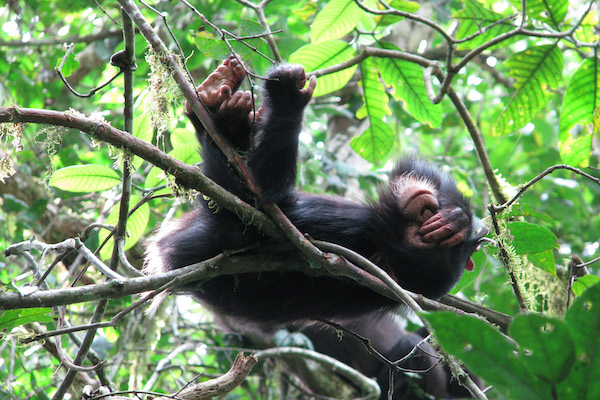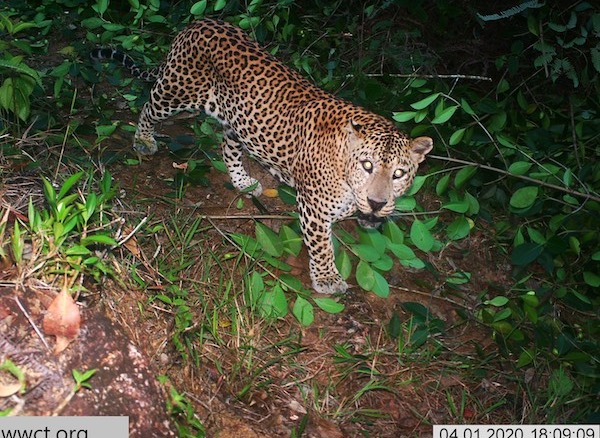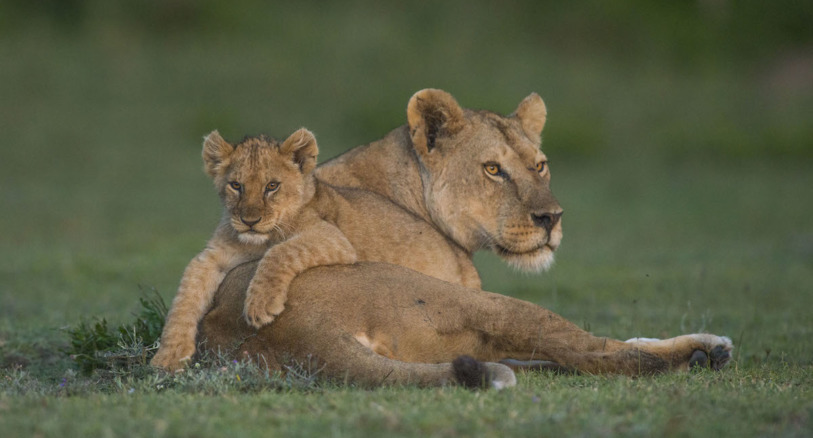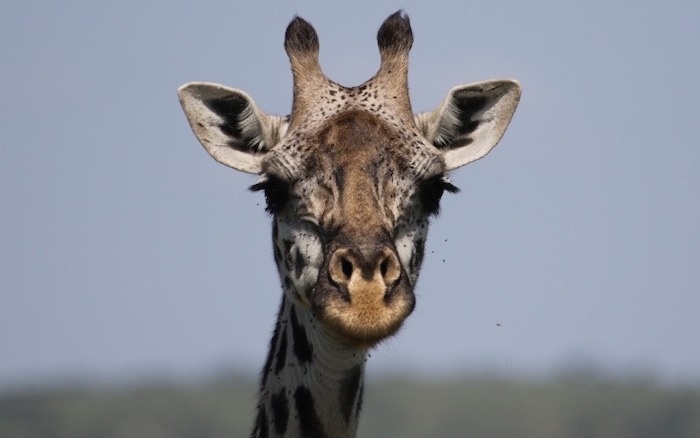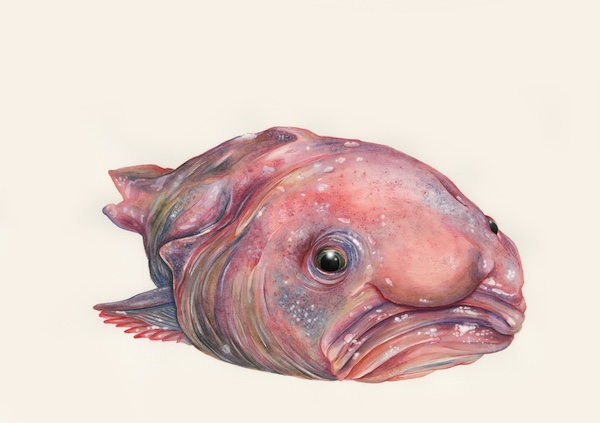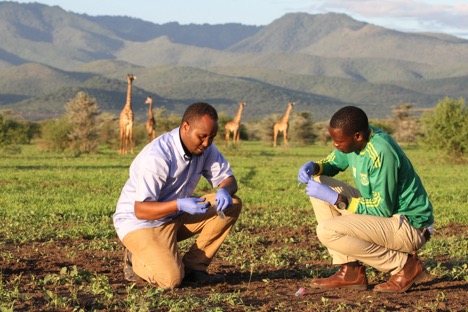
Meet Tejas Kannan. Tejas is a 15-year-old high school student from Bengaluru (Bangalore), India. Tejas enjoys math, playing piano, watching movies, eating Italian food, and eco-friendly travel.
Tejas is passionate about protecting the environment. He started an online awareness program about plastic pollution and other things that impact our environment.
Read on, as Doug Beetle talks with Tejas about what motivates him and how we can each make a difference to improve our world.
Doug Beetle: Many kids may not know why plastic pollution is a problem. Why should we care about plastic pollution?
Tejas: Plastic pollution is one of the biggest man-made problems. Take a minute and look around, wherever you are – at home, at school, at a shop, the beach, a mountain, or even a jungle safari. It could be anywhere. You will most likely see something made of plastic.
You are probably using something made of plastic right now – eating your favorite cookie packed in a plastic wrapper or eating your favorite snack with a plastic fork, knife, or spoon? Maybe you are drinking juice using a plastic straw? Or maybe you are accompanying your parents/guardian to carry a grocery bag that’s made of plastic?
Yes! I see plastic. So, what? I would encourage you to think about where this plastic lands when you dispose of it in the garbage. Does it end up in a landfill or contribute to ocean pollution?
When the plastic ends up in the landfill, it doesn’t decompose (break down) easily. It can leach some chemicals into the soil. It can affect soil quality and the quality of food grown in that soil.
When the plastic enters the ocean, marine animals mistake it for food and might eat it. I think it is good that we instead switch to an eco-friendly lifestyle by using items that can quickly decompose.

Doug Beetle: How did you become aware of plastic pollution and decide that you wanted to do something about it?
Tejas: Ever since I was a kid, I always remember my parents being strictly against plastics, whether in the form of water bottles or snack boxes. Plastics are not biodegradable (they don’t break down easily). Plastics can be bad for the environment, so I try to avoid them in general.
Seeing animals injured by plastic has also impacted my thinking. We need to make an effort to change. We should realize that we need to protect nature so that future generations can live on earth.
I am also concerned about the pollution in Bellandur Lake in Bengaluru (Bangalore), where I live. The current state of this lake is because of the disposal of harmful chemicals into the lake and bad sewage treatment. The lake is an eyesore, and the strong smell of the lake makes me feel sick.
The unsettling things I notice every day have made me want to take action and revive our wonderful world. I started championing a switch to eco-friendly products.
Doug Beetle: If people think “the problem is too big, and I can’t really make any difference by myself,” how would you convince them otherwise?
Tejas: Unless each individual makes a conscious effort, nothing is going to change. What can a single person do? Imagine if every one of a billion people had said no to plastic grocery bags or had said no to any disposable plastics? Today, we would have less plastic pollution on earth.
I encourage kids to be champions and bring in the change they want to see. Start working to improve things rather than waiting for others to do it. Start by doing small things.
Check the items you use and see how you can switch to more eco-friendly options. Encourage your friends and family to do the same.
Doug Beetle: What are some specific things that individuals can do to help reduce plastic pollution?
Tejas: Do your bit and say no to plastic. Here are some ideas for how you can use less plastic:
- Start using bamboo or reusable straws for drinking your favorite juices.
- Stop using disposable plastic straws, cups, bowls, knives, forks, and spoons.
- Take cloth bags to the grocery store and encourage your family to do the same. Refuse to accept any plastic bags from shops or restaurants. Please encourage them to start using eco-friendly packaging.
- Carry an eco-friendly water bottle with you. Fill it with water as needed from the drinking taps and reuse the bottle. Do not buy plastic disposable water bottles.
- Donate your old plastic toys to others who can use them. That way plastic toys are kept in use and don’t add to plastic pollution.
- Check what plastic is in your home. Take small steps to reduce one plastic at a time. Check and reflect on how you can be an eco-warrior and bring in change in your homes.
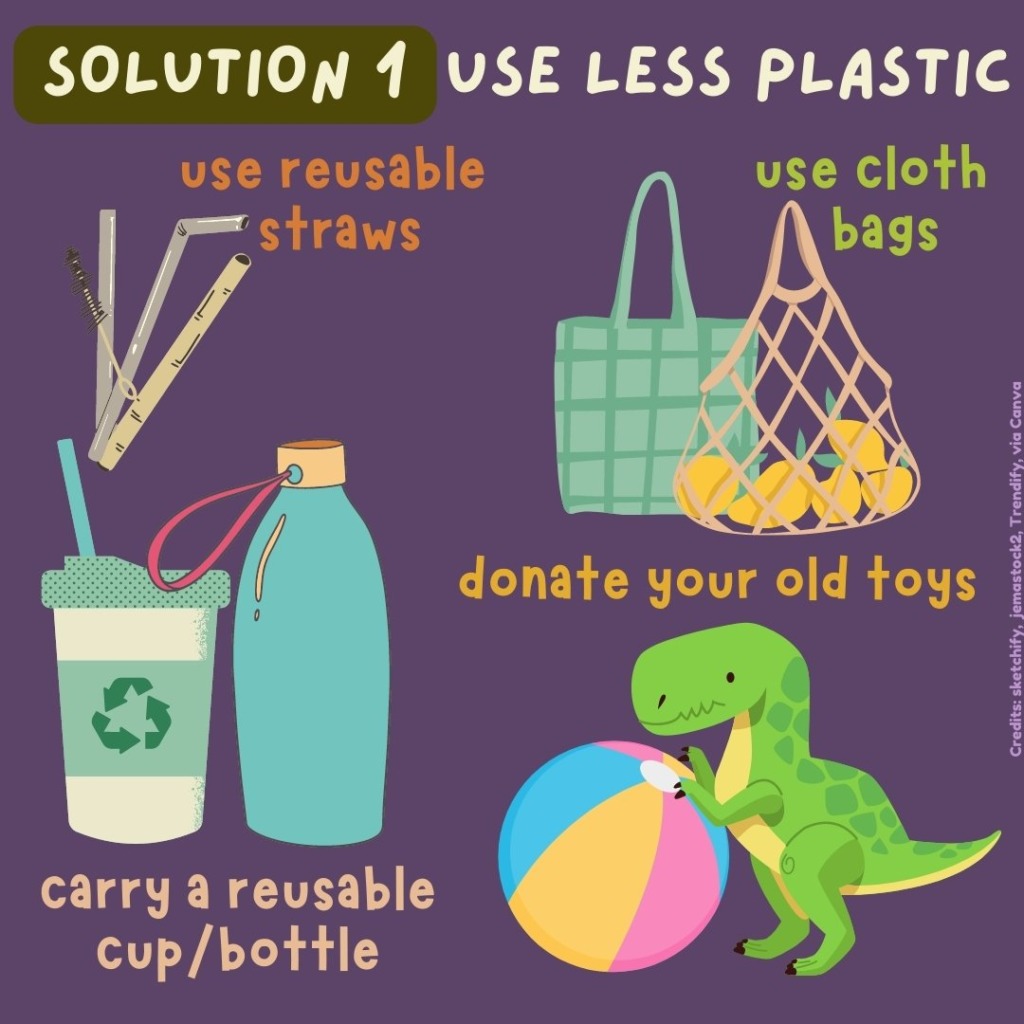
Other things you can do:
Try to follow the golden rule always – reduce, reuse, and recycle.
Segregate and dispose of your waste responsibly. Learn to make compost out of compostable waste. Send plastic waste to an authorized recycling center. Spread awareness on the harmful effects of plastic pollution.
Check for the amount of plastic waste that your home produces every day. Make sure to rinse those plastic waste items properly before recycling them. The unrinsed boxes with leftover food get worms and spoil the other plastic waste in a pile, making the whole lot non-recyclable.
Next time you see a garbage collector, be kind and say hello with a smile!
Thanks, Tejas! These are good tips to help us reduce plastic pollution.
Doug Beetle’s tip: Another helpful way to reduce plastic pollution is to organize a clean-up with your parents or at school. Keep up the good work, Kids. Together we can make a difference!


